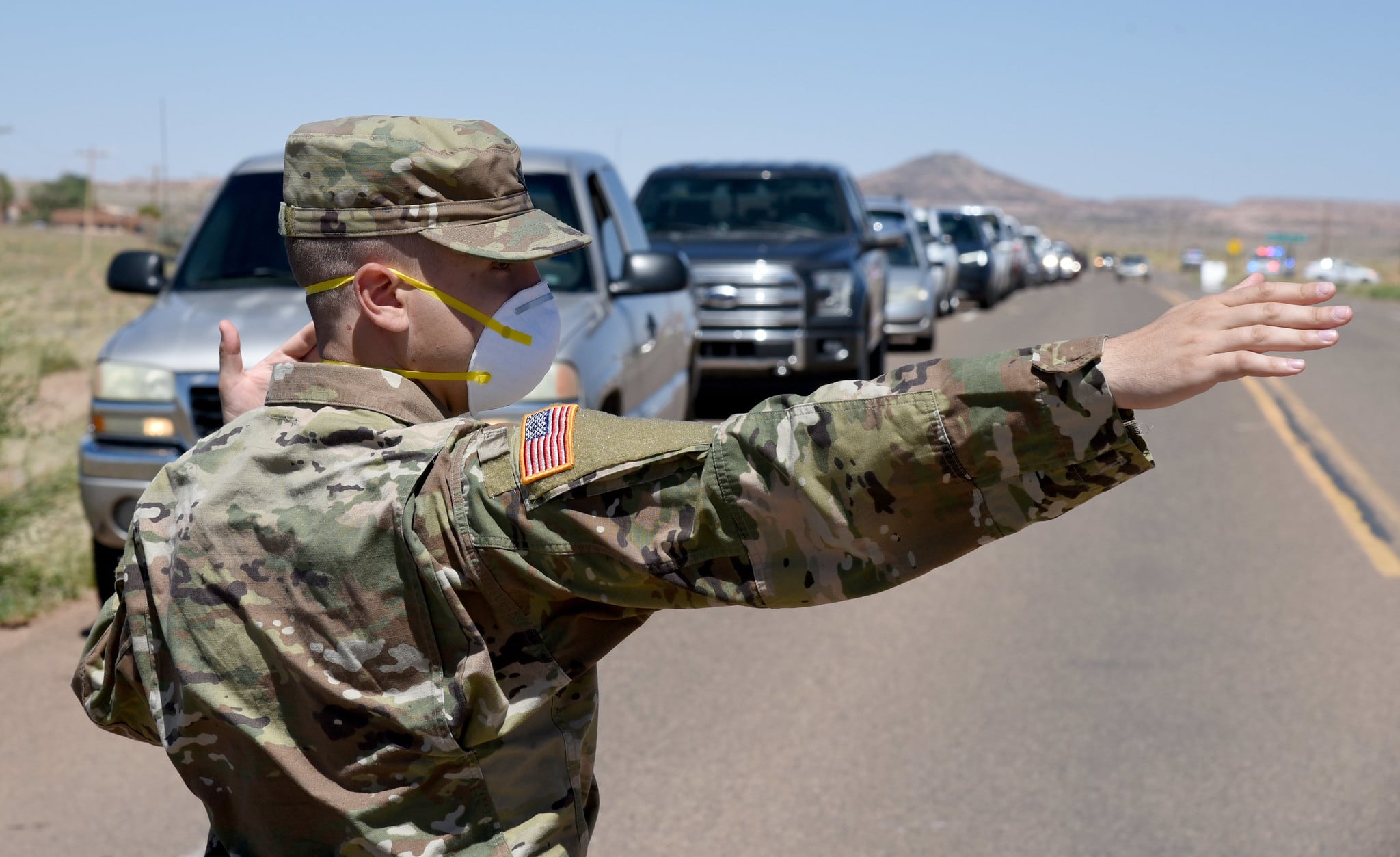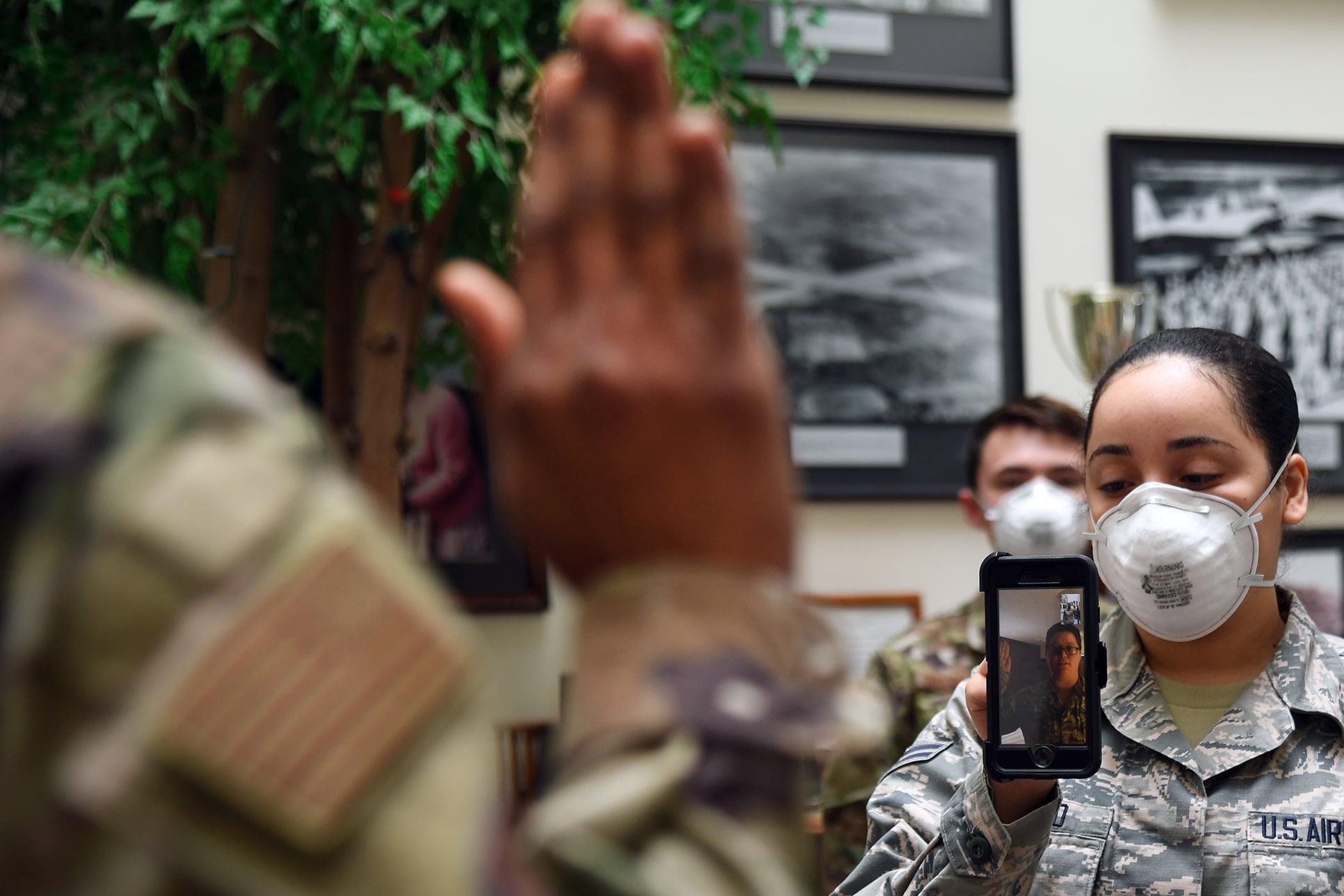As tens of thousands of National Guard and reserve members remained mobilized around the country for coronavirus response missions, lawmakers are pushing to expand their military benefits after that work is finished.
In recent days, leaders in Congress have offered new plans to extend veteran home loans to more Guardsmen, do away with certain medical co-pays for their families and enhance job training programs for their post-military careers.
The moves come just a few weeks after a Senate panel included plans to award hazard pay for Guardsmen on coronavirus pandemic missions. That provision, sponsored by Iowa Republican Sen. Joni Ernst, could add up to $150 in extra wages a month for the 46,000-plus Guard members currently serving or already finished those state support efforts.
RELATED

Final passage of that plan isn’t expected for several more months. It’s unclear whether the other Guard proposals will also face similar slow progress in Congress, or if they could be included in new emergency relief legislation related to the fast spreading virus.
The first proposal — introduced last week by a bipartisan group of lawmakers including Senate Veterans’ Affairs Committee Chairman Jerry Moran, R-Kan., ranking member Jon Tester, D-Mont., and House Veterans’ Affairs Committee ranking member Phil Roe, R-Tenn. — would credit military service under Title 32 orders (through which the majority of Guardsmen have been mobilized) toward eligibility for Veterans Affairs home loans.
Currently, those troops are only eligible for the lower-cost federal loan program if they are mobilized under separate Title 10 orders, or if they have already completed six years of military service.
In a statement, Moran said the move would better honor the part-time troops’ current efforts in the face of a national crisis and “grant them greater access to homeownership to live the American dream after service.”
Tester in recent days has also requested the Defense Department waive all health care premiums for Guardsmen returning to reserve status after their coronavirus missions, calling it a similar responsibility of leaders to recognize the sacrifice of the troops.
Those members and their families have access to certain Tricare medical benefits while on active-duty, but individuals are required to pay two months of premiums in advance to maintain health care coverage under the Tricare Reserve Select program.
“At a time when access to health care is of utmost importance to Americans and their families, servicemembers should not have to worry about this potentially burdensome expense as they return home following their sacrifices to keep their country healthy,” Tester wrote in a recent letter to Defense Secretary Mark Esper.
RELATED

On Monday, a bipartisan group of House members — including Rep. Cindy Axne, D-Iowa, New York Army National Guard Capt. Max Rose, D-N.Y., and retired Marine Corps veteran Mike Bost, R-Ill. — introduced new legislation to provide new skills training for “in-demand” jobs for Guardsmen and reservists within 180 days of separating from the military.
Last month, the national unemployment rate for veterans was 8.6 percent, according to the Bureau of Labor Statistics. That figure was an improvement over the rate for May and significantly below the 11.1 percent national rate, but still more than twice the level reported for veterans in the months before the pandemic.
Axne said in a statement that the new job training programs would ensure that the part-time troops who put their lives on hold for months to respond to the national crisis are “afforded the same gratitude and opportunities for successful growth as other members of our armed forces.”
Additional Guard and reserve provisions could be introduced in coming weeks, as both the full House and Senate continue work on their drafts of the annual defense authorization bill.
Leo covers Congress, Veterans Affairs and the White House for Military Times. He has covered Washington, D.C. since 2004, focusing on military personnel and veterans policies. His work has earned numerous honors, including a 2009 Polk award, a 2010 National Headliner Award, the IAVA Leadership in Journalism award and the VFW News Media award.
